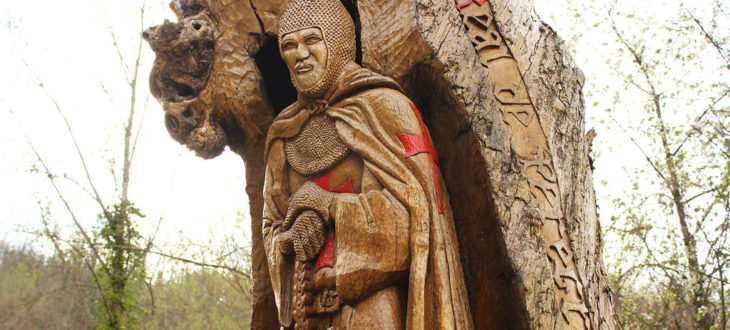The survival capacity of so many organizations that have spent the last 50 years hardly altering their main lines of action despite all the changes that have occurred in their environment is surprising. But the situation is not so different from that of the business world.
Some cling to old successes and fade; others (or the same ones) evolve: they gently reinvent themselves or are reborn from their ashes overnight; many survive, for the moment, doing the same; and others are simply born out of nowhere and succeed with a totally innovative bet.
The hidden majority, of course, fail (die), as it happens in any evolutionary environment, with scarce resources, although it may not seem so, due to the survivorship bias [1]. That is why it seems that the stock market is a safe bet, which always ends up going up. What happens is that the indices are a window to an elite minority, and do not reflect a realistic view of the entire market. Many of the companies that were part of the indices collapsed and disappeared [2].
Regarding the new trends in the social world, the takeoff of the “Effective Altruism” movement [3] is significant, which, without being something entirely new, has been able to capture and shape an approach to altruism that puts into the center the individual who needs to be helped, and therefore based on the consequences (consequentialism [4]) against the until now prevailing ethics of virtue or neo-Aristotelianism [5].
Until recently, morality based on rules and character seemed the only way to go. Previously, it drank from metaphysical foundations, in which the divine was the center (and achieving paradise or Valhalla —as well as avoiding hell or Helheim— was the goal), along with the ethics of honor, virtue, courage and the chivalry of hospitallers and templars.
In our days, on the other hand, the engine of virtue is no longer in the divine, but in human beings, now divinized (and exclusively in human beings; moral characters are no longer attributed to animals). And specifically, with the focus on the culprit, the cause of evil, the enemy (even when the enemy is oneself), in dogmatic positions (deontologism [6]), and in movements such as anti-racism, veganism (anti-speciesism), environmentalism and feminism (and other egalitarianisms [7]).
In my opinion, this focus on the culprit is generally not something sought after by the promoters of these movements, who honestly focus primarily on the victim (i.e., on preventing and solving problems, and not on taking revenge on the culprits [8]), but it is simply something that arises spontaneously and works very well, offering a justification to release our aggressive, violent and even murderous instincts.
To achieve moral action, it seems more effective to punish and frighten than to reward and thank. Specifically, and sadly, the threat of ostracism works excellently. As long as we do not modify our own genetics and neuroscience [9] (or directly, the Universe and thermodynamics [10]), the asymmetry between good and bad [11] (since it is much easier to cause harm than good) makes that it is much easier to motivate with pain than with pleasure (to avoid a greater evil, a business that, by the way, we do not hesitate to do with ourselves).
Before it was God who was going to judge you for being unsupportive and send you to hell. Now it is the rest of society who prepares your lynching on social networks. Are social organizations knowing how to recognize and adapt to these trends to achieve their social purpose? Or do they have enough to survive? Or have they already forgotten why they were born? And where do you think it is fair and good to position yourself?
Some courageous organizations go beyond the ethics of virtue, whether of divine origin (god-heaven-hell) or social posturing-lynching (virtue signaling) and propose and act according to a consequentialist ethic, really focused on the victims. Among them I highlight the xNU+ proposal from OPIS [12], which we could summarize and perhaps trivialize, but without losing much of its essence, in something as simple as: helping those who need it most, and making this our vital mission, our reason for existing, quantifying and optimizing the results as much as possible; but without getting bitter about it, trying at the same time to be happy, and without giving much importance to the paradoxes that may arise along the way.
It sounds terrible that we are motivated more by the negative than by the positive. Can’t this be reversed? The project “The Hedonistic Imperative” [9] proposes to rebel against the Russian roulette of genetics and drive motivation by well-being gradients. The carrot, instead of the stick. Hmm. It sounds good, but it sounds dangerous. With how well we are with the stick. Or should we call it Stockholm Syndrome? Yeah, but it sounds dangerous.
Dangerous for whom? The adapted ones are conservative. The vulnerable, on the other hand, need to innovate to survive. Evolution is the path marked out by misfits [13].
[1] https://en.wikipedia.org/wiki/Survivorship_bias
[2] http://losmercadosfinancieros.es/la-falacia-de-que-a-largo-plazo-la-bolsa-siempre-sube.html
[3] https://es.wikipedia.org/wiki/Altruismo_eficaz
[4] https://es.wikipedia.org/wiki/Consecuencialismo
[5] https://es.wikipedia.org/wiki/%C3%89tica_de_las_virtudes
[6] https://es.wikipedia.org/wiki/Deontolog%C3%ADa_(%C3%A9tica)
[7] https://es.wikipedia.org/wiki/Igualitarismo
[8] https://manuherran.com/sobre-la-violencia-y-el-castigo/
[10] https://es.wikipedia.org/wiki/Termodin%C3%A1mica#Segundo_principio_de_la_termodin%C3%A1mica
[11] https://manuherran.com/asimetrias-y-compensaciones-entre-placer-y-dolor/
[12] http://www.preventsuffering.org/
[13] https://manuherran.com/ciencia-y-creencia-el-factor-cooperacion-en-la-evolucion/

2 Comments